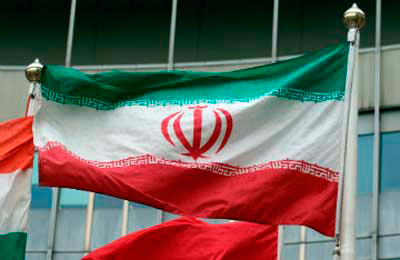
Iran’s ‘redlines’ should be respected in nuke talks: adviser
VIENNA, July 10, 2015
The top adviser to Iran's supreme leader said on Friday that Tehran's ‘redlines’ should be respected in nuclear talks with major powers aimed at curbing the country's nuclear programme, the semi-official Iranian news agency Tasnim reported.
"A deal can be reached only if (our) redlines are respected ... (US Secretary of state John Kerry's) comments are part of America's psychological warfare against Iran," said Ali Akbar Velayati, top adviser to Iran's Supreme Leader Ayatollah Ali Khamenei.
Hours ahead of a deadline set by the U.S. Congress for a quick review of a nuclear deal reached between Iran and the six powers, Kerry said on Thursday the United States and other powers were not in a rush to reach the deal with Iran.
Iran, Britain, China, France, Germany, Russia and the United States are trying to reach a deal under which Iran would curb its nuclear program in exchange for sanctions relief.
Negotiators have given themselves until the end of the day on Friday. But if a deal is not reached by 6 am in Vienna (0400 GMT), the sceptical Republican-led US Congress will have 60 days rather than 30 days to review it, extra time US President Barack Obama's administration worries could derail it.
"We're here because we believe we are making real progress," Kerry told reporters in the Austrian capital. "We will not rush and we will not be rushed."
However, Kerry said Washington's patience was not unlimited. We can't wait forever," he said. "If the tough decisions don't get made, we are absolutely prepared to call an end to this."
Over the past two weeks, Iran and the powers have twice extended deadlines for completing the long-term nuclear agreement.
Velayati said Iran had no intention to abandon the talks.
"Iran neither suggests extension of talks, nor rejects it. It is up to Americans if they want to leave the talks. Iran is ready to continue the negotiations," Velayati said.
The White House said the talks would not likely drag on for "many more weeks."
Iran accused some major powers of changing their position.
"Also they are having excessive demands," Iranian Foreign Minister Mohammad Javad Zarif told reporters on Friday.
On Thursday, a senior Iranian official speaking on condition of anonymity said, "Suddenly everyone has their own red lines. Britain has its red line, the US has its red line, France, Germany."
The official said the United States and others were shifting their positions and backtracking on an April 2 interim agreement that was meant to lay the ground for a final deal in return for easing economic sanctions crippling Iran's economy.
Sticking points in the negotiations include Iran's research and development on advanced centrifuges, access to Iranian military sites and nuclear sites and Tehran's demand for an end to a UN Security Council arms embargo,
Tehran says a UN embargo on conventional arms has nothing to do with the nuclear issues and must be lifted in any deal. Western countries do not want allow Iran to begin importing arms because of its role supporting sides in Middle East conflicts. - Reuters







